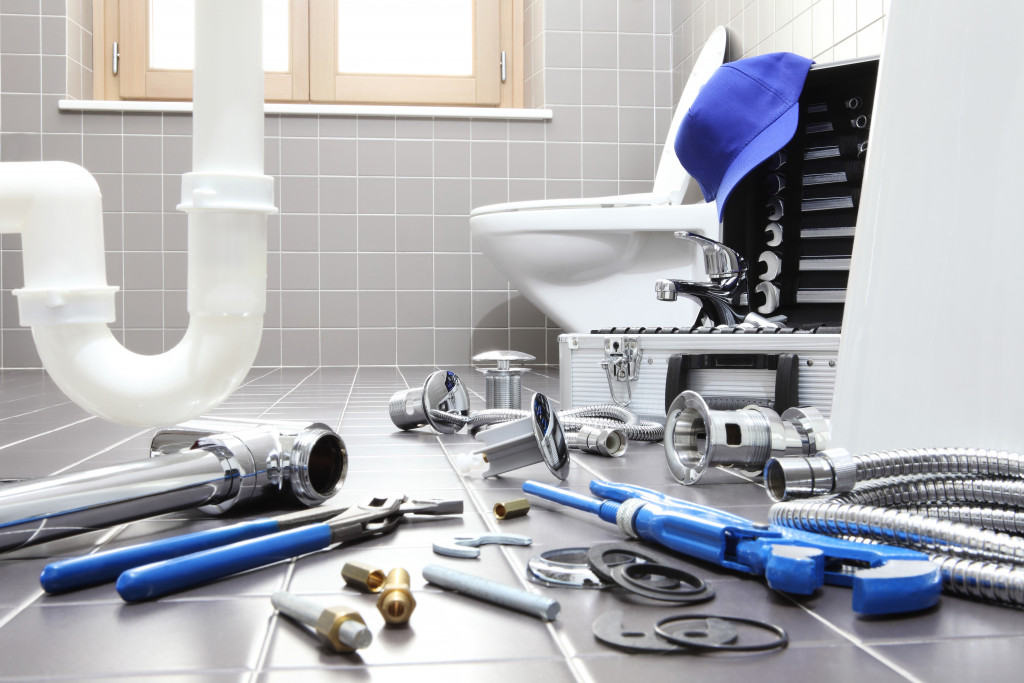For many, spring is a great season. The weather’s not too cold. But it’s also not too warm. There are more sunny hours than night. Plants are blooming too, which makes for a pretty view that can reduce stress. Spring even used to be the favorite season of most Americans back in the early 2000s before it was dethroned by fall.
But don’t let this beautiful season distract you from the home maintenance checks that you need to conduct to ensure that your home is ready for the new season.
One area that you should always check on after the winter is your plumbing. Your pipes take a lot of beating from the freezing weather. So giving them a little TLC at the beginning of spring will save you a lot of trouble in the long run.
Here’s a checklist to help you get started:
Check for Pipe Leaks
It’s not unusual for pipes to crack during the winter due to the freezing weather. When water freezes, water molecules expand. This, in turn, expands the ice and puts a lot of pressure on the pipes. So they start to crack or, worse, burst.
Cracked pipes cause leaks. And leaks can cause significant damage to your property. For example, they cause moisture in your walls and floors. And if not immediately addressed, molds may grow and cause allergic reactions.
Given these problems, you need to remember to check your pipes. Start with the fixtures inside your home. Open your faucets and check if there are leaks from the visible pipes. Repeat the process when you check exposed pipes outside your home. Check your water bill as well. An unusual spike in your bill might indicate a leak.
Check Water Appliances
Your bathroom and kitchen pipes are not the only ones that might leak. Your water-powered appliances may also be damaged and cause problems. Check the water lines connected to your “water appliances.” These include your refrigerator, washing machine, and dishwasher. If you find that the hose in each appliance is starting to bulge or have significant folds, you may need to replace them.
Inspect Drains
There are many celebrations during the wintertime. And if there’s a lot of food, there will be some leftovers and a lot of plates that need to be cleaned. The food and grease can clog your kitchen sink. You’ll also need to check your bathroom drainage since hair other debris can also clog it. Clogged pipes mean slow drainage, which can be very frustrating.
So when spring starts, you need to check for clogged drains. If you have your own drain snake, snake your pipes that you suspect may be clogged. But if you don’t have the tools and are unsure of what to do, you can hire a plumber near you. They can help you dislodge clogged drains and even check your drainage system for other problems.
Check the Water Pressure
If you notice a change in your water pressure, don’t wash it off. It may be a sign of damaged pipes. Cracks and holes in pipes reduce water pressure since the water is seeping out of them as it flows through.
Check the main shut-off valve first and see if it’s completely open. If it is and you still experience low water pressure, inspect your exterior pipes and see if there are any noticeable cracks or holes. If there are, you will need to have them replaced immediately to solve the problem.
Test Your Sump Pump
One of the important parts of your home is your sump pump. It’s usually placed in a basement. And it stores excess water to prevent flooding. Your sump pump is also prone to damage due to freezing during the winter, especially if you don't have the proper insulation in your basement. If your sump pump stops working, water might settle in some areas of your home during a storm. And this settling may result in structural damage.
So when the cold temperature subsides, check on your sump pump. Try filling it with enough water to activate it. If the water level in the sump pit starts lowering, your pump is fine. If it’s not, seek the help of a waterproofer to fix your sump pump.
Having a home comes with several responsibilities. And one of them is regular maintenance of everything in your home, such as your plumbing system. Proper maintenance will help you avoid problems that may break your bank and damage the foundations of your home.
